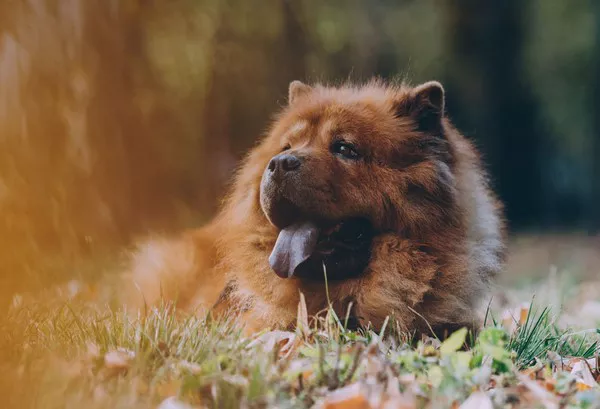Chow Chow dogs, with their distinctive lion-like mane and regal demeanor, have captivated dog enthusiasts for centuries. These ancient and enigmatic canines possess a unique blend of characteristics that make them both intriguing and challenging companions. In this comprehensive guide, we will delve into the world of Chow Chows, exploring their history, physical attributes, temperament, grooming needs, training requirements, and health considerations. Whether you are a seasoned dog owner or a newcomer to the canine world, this article aims to provide you with valuable insights into the captivating world of Chow Chow dogs.
Historical Origins
Ancient Origins and Heritage
The history of the Chow Chow dog is steeped in antiquity. This breed’s origins can be traced back over two thousand years to China, where it was initially utilized for a variety of purposes. From guarding temples and palaces to hunting and pulling carts, Chow Chows were valued for their versatility and loyalty. Their distinctive appearance, with a blue-black tongue and lion-like mane, set them apart from other breeds and contributed to their aura of mystery.
Spread Across Continents
As trade routes expanded, the Chow Chow found its way beyond the borders of China, making its mark in different parts of the world. In the 18th century, British merchants and sailors brought these dogs back to Europe, where they quickly gained popularity as exotic and intriguing companions. Today, Chow Chows are cherished by dog enthusiasts worldwide for their distinctive appearance and captivating personality.
Physical Attributes
Distinctive Appearance
One of the most striking features of the Chow Chow is its unique appearance. They are a medium to large-sized breed with a sturdy build and a distinctive lion-like mane around their neck. Their fur can come in a range of colors, including red, black, blue, cinnamon, and cream. The breed’s most iconic feature is its blue-black tongue, which sets it apart from virtually all other dog breeds.
Temperament and Personality
Regal Demeanor
Chow Chows are known for their dignified and aloof demeanor. While they are loyal and affectionate with their families, they can be reserved and even standoffish with strangers. This aloofness is a trait deeply rooted in their history as guard dogs. While they may not be as overtly demonstrative as some other breeds, the bond they form with their owners is strong and enduring.
Independent Thinkers
Chow Chows are renowned for their independent nature. This quality can make training a unique experience, as they often prefer to think for themselves. While they are intelligent and capable of learning, consistent and patient training is essential to channel their inherent stubbornness into positive behaviors. Early socialization and obedience training are crucial to ensure they grow into well-mannered companions.
Grooming Needs
Double Coat
Chow Chows boast a luxurious double coat that provides insulation in both cold and warm weather. While this coat contributes to their regal appearance, it also requires regular maintenance. Routine brushing helps prevent matting and reduces shedding, which can be especially heavy during shedding seasons. Pay close attention to the dense fur around their neck, known as the mane, as it tends to mat more easily.
Skin and Coat Health
Maintaining healthy skin and coat is essential for the well-being of Chow Chows. Regular grooming not only keeps their fur looking its best but also helps prevent skin issues that can arise due to trapped dirt or moisture. Bathing should be done as needed, using a gentle dog shampoo to avoid stripping the coat of its natural oils. Additionally, cleaning the folds of skin around their face and muzzle can help prevent infections.
Training and Socialization
Early Training for Success
Chow Chows thrive when provided with early and consistent training. Their independent nature can pose challenges, but patient and positive reinforcement-based methods are most effective. Begin training from a young age, focusing on basic commands and leash manners. Engaging in mental stimulation activities, such as puzzle toys and interactive games, can help keep their sharp minds occupied.
Importance of Socialization
Proper socialization is crucial for Chow Chows. Introduce them to various people, animals, environments, and experiences to ensure they develop into well-adjusted adults. Exposing them to different situations helps prevent excessive shyness or aggression. However, it’s important to respect their boundaries and not overwhelm them, as they can be sensitive to unfamiliar stimuli.
Health Considerations
Common Health Issues
Like all breeds, Chow Chows are susceptible to certain health conditions. These may include hip and elbow dysplasia, patellar luxation, and entropion (a condition where the eyelids roll inward). Regular veterinary check-ups and a balanced diet can contribute to their overall health and well-being. Additionally, maintaining a healthy weight is essential to minimize the risk of joint issues.
Heat Sensitivity
Chow Chows are sensitive to heat due to their thick double coat. During hot weather, they can be prone to overheating, which can lead to heatstroke. It’s crucial to provide them with ample shade, fresh water, and a cool environment. Avoid rigorous exercise during the hottest parts of the day and be vigilant for signs of overheating, such as excessive panting or lethargy.
Conclusion
Chow Chow dogs are a breed rich in history, personality, and distinctive charm. Their enigmatic nature, regal appearance, and loyal companionship make them a truly unique choice for dog enthusiasts. Understanding their historical significance, grooming needs, training requirements, and health considerations is essential for providing them with a fulfilling and happy life. As you embark on the journey of caring for a Chow Chow, remember that patience, dedication, and a deep respect for their individuality will help you forge a strong and lasting bond with these captivating canines.


